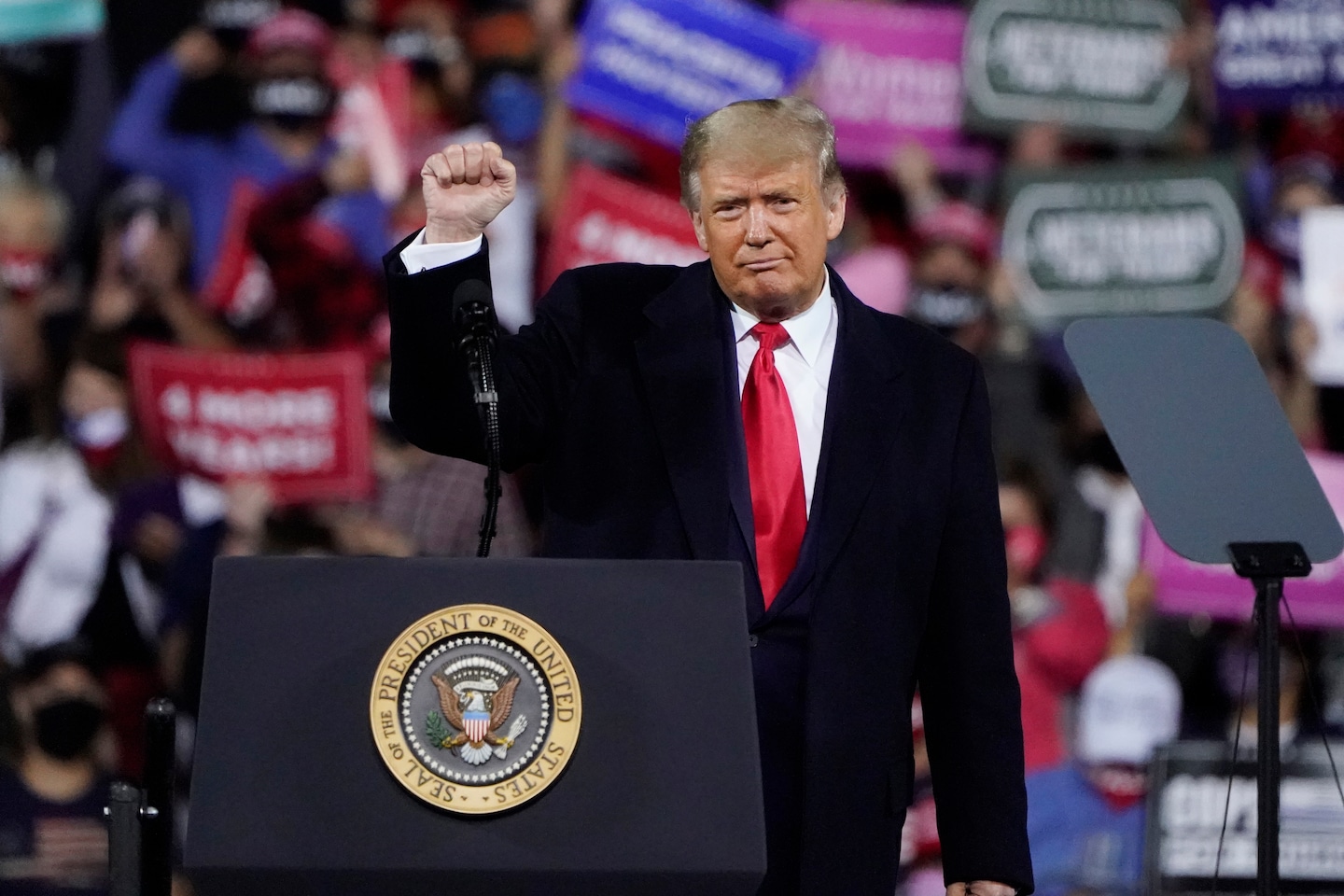Trump has never shied away from identity politics, despite his allies’ loathing of it

But Trump’s pledge to nominate a woman to the Supreme Court to fill the seat of the Justice Ruth Bader Ginsburg, an icon to many advocates for women’s rights, is a reminder that Trump has never been reluctant to employ identity politics when it aids him.
Ginsburg’s death gives Trump an opportunity to make perhaps his strongest appeal to female voters since his 2020 campaign began. And Trump appeared to do that almost immediately after her death. A day afterward, Trump made it clear that gender would be prioritized in his decision-making process.
“It will be a woman, a very talented, very brilliant woman,” he said at a Saturday rally in Fayetteville, N.C. “I haven’t chosen yet, but we have numerous women on the list.”
This might appear to be a reversal of a philosophy when it comes to gender for the preferred candidate of those who aggressively attack the left on this issue, but it’s a continuation of a worldview that leans into the selective prioritizing of identity when it is most beneficial while bemoaning its use at other times. We found no record of Trump speaking out directly against identity politics as many of his allies have, which is understandable, considering that embracing it has in fact been his calling card.
Fox Business Network anchor Lou Dobbs has attacked the left for adhering to identity politics while praising Trump for rejecting them.
“Group and identity politics are really the blueprint for the Democratic Party,” Dobbs said in October 2018. “It’s no longer, as it once was, about the American worker. It’s no longer about Middle America or middle-class Americans.”
And Fox host Laura Ingraham, who regularly communicates with the president, often bashes the left and the idea of identity politics on social media and her shows.
“The culture of victimization and identity politics has run amok in America,” she tweeted last year. “What consequences are you seeing in your life?”
Well, the consequence for the right has been a president who appeals to identity when it benefits him and the groups that support him. And that is what he appears to be doing with his support for Amy Coney Barrett, a woman whom Trump previously said he was “saving” for Ginsburg’s seat.
Nominating a conservative woman isn’t so much about Trump’s efforts to win women. The political stances of many female voters are too left of Trump’s political philosophy for him to connect with them.
But his nominating a conservative woman to the bench is a continuation of Trump embracing the type of identity politics that his supporters have rewarded since his campaign launched. His appeals to White identity politics have been some of the most overt in recent presidential history — evident Saturday in North Carolina while segueing to focus on Barack Obama’s middle name while discussing the economy.
“Ladies and gentlemen, it’s President Barack Hussein Obama,” he said. “As Rush Limbaugh would say, Barack Hussein Obama, right? You ever hear Rush? Barack Hussein Obama.”
Appeals like that have been incredibly effective. Trump won the White vote in 2016 and continues to fare better with many White groups (working-class, evangelicals, men, etc.) than Democratic nominee Joe Biden. But this most recent effort — one that from the outside looks like an appeal to connect more deeply with women, a voting bloc that historically has not backed him — could benefit Trump greatly by giving the impression that preserving the gender balance of the court is important to someone who has been accused of not having enough women in high positions in his administration.
“I think it should be a woman, because I actually like women much more than I like men, I have to say,” Trump said Saturday. “No, I do. I do I like women more. So I have to make a decision to fill the seat.”
Throughout his presidency, Trump has made it clear that no group of voters is more important to him than his base. And by nominating a judge approved of by the Federalist Society, a conservative group known for its originalist interpretation of the Constitution, Trump would reinforce that. In naming a woman whose bona fides appease his conservative base, the president gets to do something that has become pretty common throughout his campaign — give the impression that he is reaching beyond his core supporters while reinforcing his loyalties to them.






